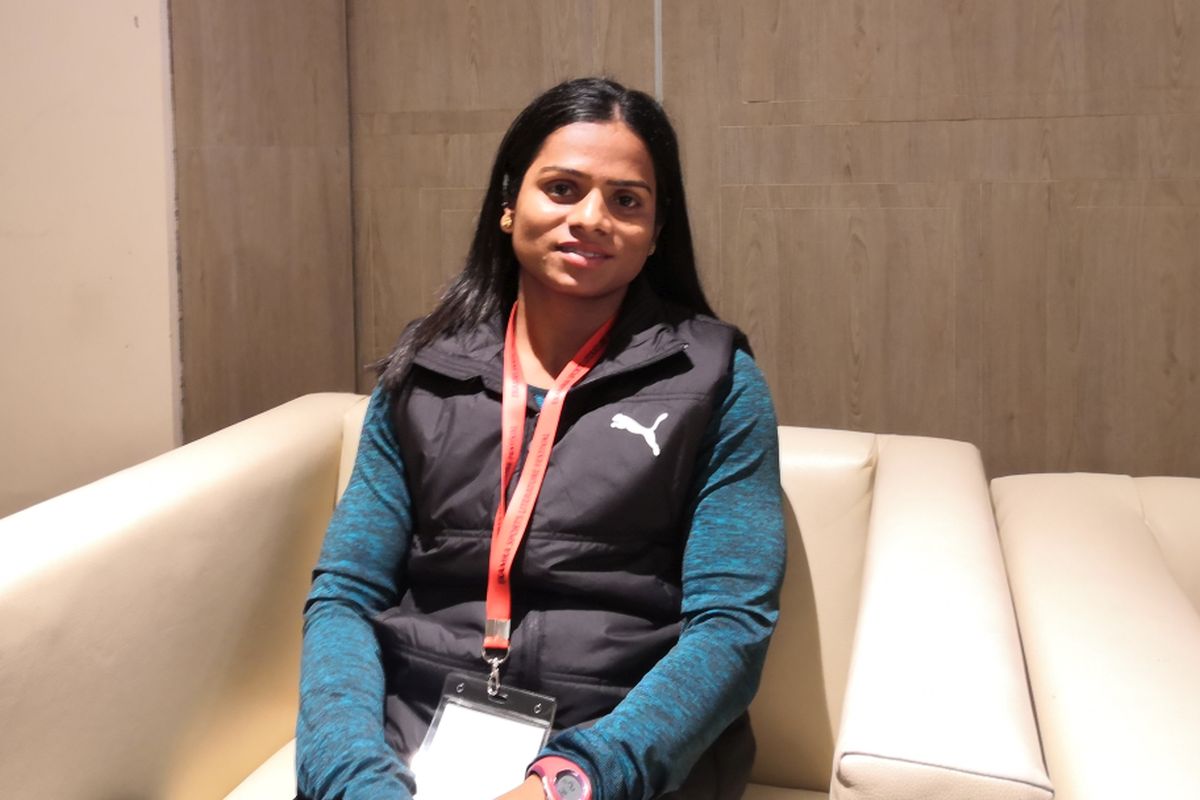Returning Nadal to begin US Open tune-up with Citi Open
After having skipped Wimbledon and the Tokyo Olympics the world No. 3 begins his quest for an 89th tour-level title as the top seed
In an exclusive interview with The Statesman, the track queen, who is yet to qualify for the mega event in Tokyo, opened up about her preparation issues, hurdles, future plans, and her personal battles.

Dutee Chand. (Photo: SNS/ Aditya Kumar)
India sprinter Dutee Chand, who is the current national champion in the women’s 100-metre event, said she is not getting the requisite amount of help she needs in order to qualify for the upcoming Summer Olympics in Tokyo starting July 24.
In an exclusive interview with The Statesman, the track queen, who is yet to qualify for the mega event in Tokyo, opened up about her preparation issues, hurdles, future plans, and her personal battles.
Advertisement
Q. Do you think you have enough time to prepare for 2020 Tokyo Olympics?
Advertisement
A. I am personally hoping to prepare in time for the event but I am not getting the requisite amount of help I should get. In India, there are no female sprinters of my standard so I need players from outside the country to compete. The personal best of Indian runners doesn’t meet the criteria (11.15 seconds) needed to qualify for Tokyo Olympics.
Right now, I am practising with the boys, but ultimately I don’t have to compete with them, I have to compete with the girls. So, I have requested the Athletics Federation of India (AFI) to propose my name in the competitions outside the country so that I can meet the required standard.
Moreover, the money I am getting from the sponsors couldn’t even suffice the amount I need for training. I require around 3 to 3.5 lakh per month to train myself. Though the state government (Odisha) is helping me; that is not enough.
I don’t know what the problem is with AFI? They are not heeding my request. If they help me out then I can certainly bring a medal for India.
Q. How are you preparing for the upcoming competitions?
A. Sportspersons don’t prepare themselves for a competition in particular. They always have to be fit and train themselves even when there is not any match.
Big games like Commonwealth, Asian Games, Olympics come in intervals, but one always has to be prepared for the challenges.
Q. In 2014, International Olympics Committee regulations on female hyperandrogenism kept you out of the game for a while. Tell us about that phase and how tough was the comeback for you?
A. Not only in sports rather in any field, if question arises on a girl’s identity it is tough for her to tackle. Especially, in India, people don’t care much about the progress of a girl, but now, one can see that girls are doing pretty good in every field.
In sports, such problems give rise to mental tensions and disturb the rhythm of the sportsperson, deviating from her actual goal. Finally, it becomes hard for a player to focus on her game.
I didn’t go to the national camp unless I got the green signal, but my life has changed a lot after that. Now, I don’t care about anyone’s comment even if that is on my personal life.
At that time I had no advisor so I knew nothing but now I have an advisor.
The 2015 verdict by the Court of Arbitration for Sport forced new regulations into the game which helped me come back to the track. Look, my hormones are natural, they fluctuate on their own and it is not my mistake!
Q. Do you think accepting openly about your same-sex relationship has increased your responsibilities? Is your revelation going to bring any change in the society?
A. Yes, my responsibilities have increased since then. I am a celebrity and hence the LGBTQ+ community has got an icon. Just because no Indian athletes involved in such a relationship had revealed their status earlier and I did it, I have got the limelight.
However, my revelation will definitely bring a change. Those fearing about their relationships have now got confidence. India is a democratic country and everyone has the freedom to live a life of their choice.
If you go around 50 years back, our society was not as developed as it is now. In the past, there were regulations that were too constraining for the society but with time they have changed.
Rules are made for society, not society is made for rules.
Q. Your own family members, including your mother and sister, are against your relationship. How tough is it for you to deal with this predicament concerning your dear ones?
A. My elder sister is not married and she thinks that I might forget her and won’t ask her in case I stay in such a relationship. That is why she is against it. But for me, this relationship is extremely important as I am already away from my family. So when they ask me to break this relationship, I get disturbed.
I have always urged my sister to help me in keeping this relationship and have assured her that I will keep caring about my family.
Advertisement